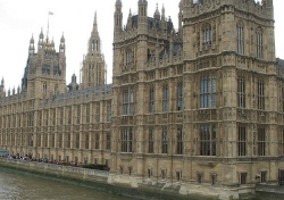Government efforts to collect data on charities and social enterprises at the start of the pandemic were “chaotic”, a parliamentary committee said today.
The Department for Digital, Culture, Media and Sport (DCMS) was left “scrambling for information” to understand the impact of Covid-19 on civil society when the outbreak began, according to MPs and peers on the all-party parliamentary group (APPG) on social enterprise.
Their report into the government’s support for social enterprises during the crisis, Rising to the Challenge, was published this afternoon.
The report recommends that responsibility for social enterprise should be moved from DCMS to the Department for Business, Enterprise and Industrial Strategy (BEIS).
‘Puzzling’ DCMS approach
Social entrepreneurs first raised their concerns formally with government on 13 March 2020, 10 days before the first national lockdown was implemented, the report said.
It says that representatives from social enterprise told officials at the Covid-19 forum, convened by DCMS, about “the lack of balance in the meeting, which only included one voice from social enterprise and focused more on voluntary organisations and volunteers than social enterprises, despite the size and scale of the sector being equal (and in employment terms greater than) the voluntary sector.
“Despite raising this issue, no changes were made to the balance of the meetings. Given the impact and contribution of social enterprises, this decision is puzzling.”
Data
One witness told the committee that DCMS’s approach to data collection was “chaotic”.
The report found that “basic information on the size and scale of the social enterprise sector was not available to officials. The rush to understand the sector was typified by repeated requests for information with very short deadlines”. MPs describe times when sector representatives had just a single morning to provide “detailed information” on social enterprise, as well as requests for data which “had already been provided weeks earlier”.
The report said: “Repeatedly, ministers would say that not enough information had been provided to make decisions, despite all requests for information being responded to.”
It said that progress was hampered by “a lack of understanding and awareness of social enterprise or its contributions to society and the economy” and that the “government had to learn about social enterprise as the pandemic developed, and did not have the information to integrate social enterprise into policy measures as they were being developed”.
This weakness “raises questions” about whether DCMS should retain responsibility for policies affecting social enterprise, the MPs concluded.
Where in Whitehall?
The parliamentarians called on the government to move oversight of social enterprise from DCMS to BEIS, “so that social enterprise is fully embedded in business policy across government and to ensure that future support open to other businesses is made available equally to social enterprises”.
The report also said that the role of social enterprises in public service delivery should be “ramped up”, given the financial resilience the sector showed during the pandemic. It stated: “At a time when we are looking to rebuild from Covid-19, we need our best organisations on the frontline.
“Rather than ramping down social enterprise in public services, we should be ramping up delivery.”
SEUK: Ministers need to listen
Social Enterprise UK urged the government to take on board the recommendations in the report.
Peter Holbrook, chief executive of Social Enterprise UK said: “I am grateful to parliamentarians for their inquiry and the recognition of the vital contribution that social enterprises made to keeping our country going through the pandemic. Social enterprises across the UK stepped up to help communities when they needed it most and we should be proud of what the sector has done and continues to do to help with our recovery.
“We should learn the lessons from the pandemic but more importantly we need to think about the future. Whether it is the independent Commission on Social Investment or this APPG inquiry there is a clear consensus that social enterprise have significant potential to improve our society but we are not doing enough to maximise that potential.
“I hope that ministers will listen carefully to the constructive recommendations made in this report and work more closely with the social enterprise sector to develop a plan for how we can grow our sector over the coming years.”
Related articles












